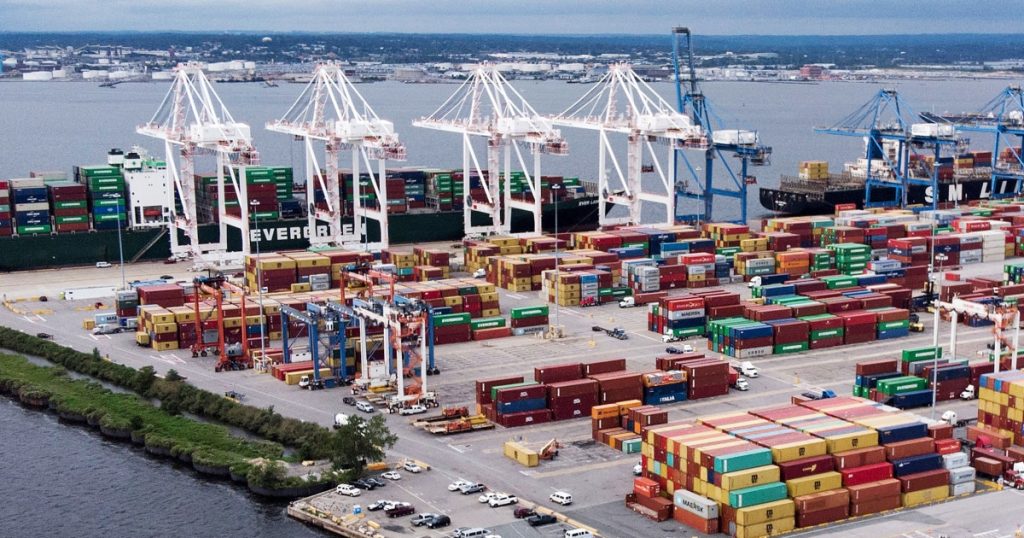Following the closure of the Port of Baltimore, CSX announced a new rail line to handle the diverted cargo, only to see the containers rerouted back to Baltimore. The containers that had been diverted to the Port of New York and New Jersey are once again being unloaded in Baltimore, thanks to discussions between CSX and Ports America. While the volume of containers remains the same, the touch points in handling the containers have changed. Rail transport is favored by shippers for its cost-effectiveness and environmental benefits, making it an attractive option for retailers.
The rail route for the diverted cargo includes stops in Chicago, Kearney, New Jersey, and Baltimore. Supply chain intelligence firm Project44 reports that containers originally destined for the Port of Baltimore were rerouted to ports such as Norfolk, New York, Wilmington, and Newark-Elizabeth, New Jersey. Norfolk Southern has announced a dedicated service to facilitate the flow of diverted freight between the ports of New York and New Jersey and Baltimore, which will start on April 5. This service aims to streamline transportation and assist cargo owners in need of door-to-door service.
While the marine container ship operations at the Port of Baltimore remain closed, land operations have continued without interruption. The International Longshoremen’s Association (ILA) labor union, which represents maritime workers, has played a key role in keeping operations running smoothly. The ILA is currently in labor negotiations over a contract that expires in September. Trucking operations at the port have carried on as usual, with no new containers being unloaded from vessels. The Ports America Chesapeake container yard has fewer import containers than usual, and trucking turn times are reported to be normal.
As the situation at the Port of Baltimore unfolds, there are ten vessels stranded at the port, including a roll-on/roll-off vessel loaded with cars, farm equipment, and trucks. Despite the challenges, there is no discussion of unloading the RORO vessel or rerouting the vehicles to another port. The Port of Baltimore is a key hub for auto, farm equipment, and light truck import-exports, processing billions of dollars in trade annually. The closure of the port is estimated to have a significant economic impact, affecting not only the direct trade value but also the broader cross-border flow of goods.
Overall, the situation at the Port of Baltimore highlights the complex logistics involved in managing disrupted supply chain operations. The collaboration between CSX, Ports America, Norfolk Southern, and other stakeholders demonstrates a collective effort to address the challenges and find alternative solutions to keep cargo moving effectively. As negotiations continue and operations evolve, maintaining efficient transportation networks and labor support will be crucial in ensuring the resilience of the port and its impact on the larger economy.















